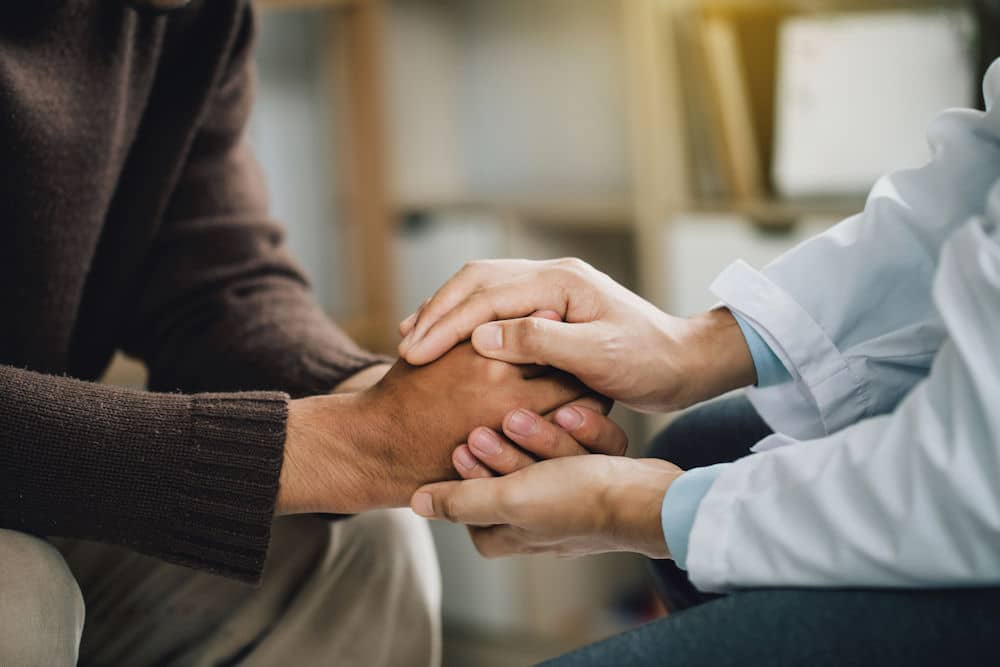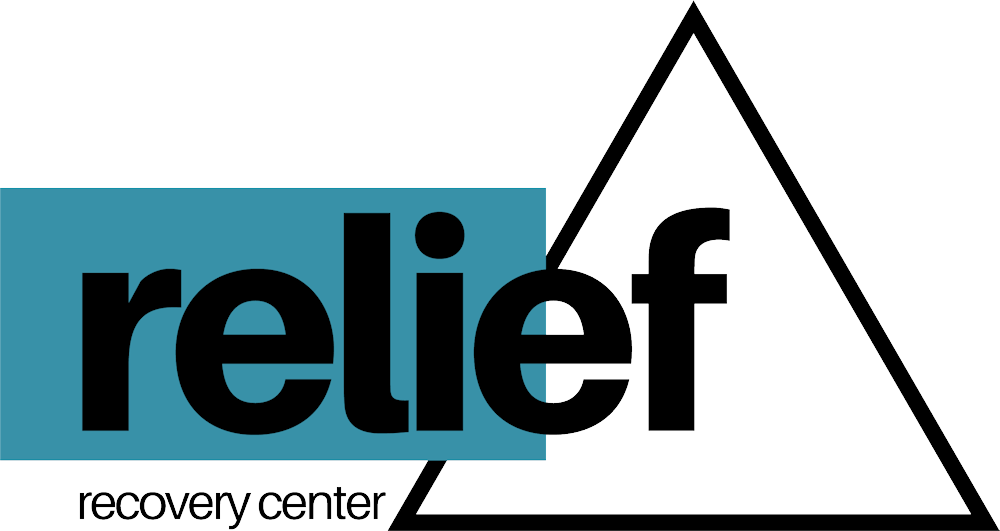Rediscover Hope and Joy: Break Free from Opioid Addiction
» Treatment »
The opioid epidemic is a crisis that has affected countless lives in America. Opioids are a class of drugs that include prescription painkillers and heroin, and they have become increasingly prevalent in recent years.
What starts as a legitimate prescription for pain relief can quickly turn into a dangerous addiction.
The consequences of opioid addiction can be devastating, affecting not only the individual but their family and community as well.
At Relief Recovery Center, we understand the toll that addiction takes on people’s lives, and we are here to help. Our mission is to provide hope for recovery and to help individuals reconnect with life by healing from drug addiction.
What is Opioid Addiction?
Opioid addiction is a condition in which a person becomes dependent on opioid drugs. Opioids are powerful pain-relieving medications that are used to treat moderate to severe pain. However, opioids can also cause feelings of pleasure and euphoria, leading some people to misuse them for non-medical reasons. When opioids are used in excess, they can lead to addiction, which can have serious consequences on a person’s health and well-being.
The opioid crisis in the USA began in the late 1990s and early 2000s, when there was a sharp increase in the prescription and use of opioid painkillers. This was due to aggressive marketing by pharmaceutical companies and the medical community’s belief that opioid painkillers were safe and non-addictive. However, this belief proved to be false, and many people became addicted to opioids, leading to an increase in heroin and fentanyl use as well.
Opioid addiction is a chronic disease that affects the brain and can cause physical and psychological dependence on these drugs. It can be difficult to overcome opioid addiction, and many people need professional treatment to successfully recover.
The Opioid Crisis
- The opioid crisis has been declared a public health emergency in the United States.
- Massachusetts has been one of the states hit hardest by the opioid epidemic, with overdose deaths rising significantly in recent years.
- In 2021, there were 2,199 opioid-related overdose deaths in Massachusetts.
- That’s an average of six deaths per day in the state.
- In 2021, there were 2,012 fentanyl-related overdose deaths in Massachusetts.
- Heroin, another opioid, was involved in 522 overdose deaths in Massachusetts in 2021.
- Prescription opioids also remain a significant problem in Massachusetts, with 156 overdose deaths involving prescription opioids in 2021.
What Are The Different Types of Opioid Drugs
Heroin
- Addiction risk: High. Heroin is highly addictive and can lead to dependence after just a few uses.
- Dangers: Heroin is a potent opioid that can cause respiratory failure, coma, and death.
- Symptoms: Symptoms of heroin use include constricted pupils, drowsiness, and respiratory depression. Other symptoms may include nausea, vomiting, and itching.
Fentanyl
- Addiction risk: High. Fentanyl is a potent synthetic opioid that is 50-100 times more potent than morphine.
- Dangers: Fentanyl is highly potent and can lead to respiratory depression, coma, and death even at low doses.
- Symptoms: Symptoms of fentanyl use include pinpoint pupils, severe respiratory depression, cold and clammy skin, and unconsciousness.
Oxycodone
- Addiction risk: High. Oxycodone is a powerful opioid painkiller that can be highly addictive.
- Dangers: Oxycodone can lead to respiratory depression, coma, and death, especially when misused.
- Symptoms: Symptoms of oxycodone use include constricted pupils, drowsiness, and respiratory depression. Other symptoms may include nausea, vomiting, and itching.
Hydrocodone
Hydrocodone is another prescription opioid used to manage moderate to severe pain. It is often sold under brand names like Vicodin and Norco. Like other opioids, it can be highly addictive and is responsible for a significant portion of opioid overdose deaths.
- Addiction risk: High. Hydrocodone is a commonly prescribed opioid painkiller that can be highly addictive.
- Dangers: Hydrocodone can lead to respiratory depression, coma, and death, especially when misused.
- Symptoms: Symptoms of hydrocodone use include constricted pupils, drowsiness, and respiratory depression. Other symptoms may include nausea, vomiting, and itching.
Codeine
Codeine is a prescription opioid used to manage mild to moderate pain. It is often combined with other painkillers like acetaminophen and sold under brand names like Tylenol with Codeine. It can also be found in cough syrups. Codeine can be addictive and is responsible for a portion of opioid overdose deaths.
- Addiction risk: Moderate. Codeine is a milder opioid painkiller that can be habit-forming with long-term use.
- Dangers: Codeine can lead to respiratory depression, coma, and death, especially when misused.
- Symptoms: Symptoms of codeine use include constricted pupils, drowsiness, and respiratory depression. Other symptoms may include nausea, vomiting, and itching.
Can Prescription Drugs Be Abused?
Prescription drugs can provide effective treatment for various medical conditions, but their misuse can lead to serious consequences. Here are some common ways people misuse prescription drugs:
- Taking someone else’s medication: Taking someone else’s prescribed medication, even for a legitimate medical reason, is considered misuse.
- Taking medication in a non-prescribed way: This can include taking more than the prescribed dose, taking the medication more often than prescribed, or crushing prescribed pills into a powder to snort or inject the drug.
- Taking the prescribed medication to get “high”: Opioids, stimulants, and depressants can be used to get high, even though they have legal medical use.
- Borrowing or stealing medication from a family member or friend: Prescription medication is intended for the individual whose name is on the prescription. When anyone else uses, borrows, or takes the prescribed medication, they are misusing the drug, which can lead to dependence, tolerance, and addiction.
- Refilling a prescription without a doctor’s order: Doctors prescribe many prescription drugs for short-term use. Refilling drugs without a doctor’s order can lead to unwanted side effects and increase the chances of becoming dependent on the drug.
- Mixing prescribed medications with alcohol or recreational drugs: Mixing prescription drugs with other substances can have severe consequences, including overdose and death. It is crucial to follow the medication’s instructions and avoid consuming alcohol or other drugs while taking prescription medication.
Misusing prescription drugs may not always result in immediate adverse effects, but it can be dangerous and lead to dependence, addiction, and overdose over time. It is essential to take prescription drugs only as directed and to talk to a doctor if any adverse effects occur.
Prescription Drug Withdrawal Symptoms
Withdrawal symptoms for drug addiction can vary depending on the drug and the severity of the addiction, but some common symptoms include:
Withdrawal symptoms from opioids:
- Anxiety
- Agitation
- Muscle aches
- Sweating
- Insomnia
- Yawning
- Runny nose
- Nausea and vomiting
- Abdominal cramping
- Diarrhea
- Dilated pupils
- Goosebumps
Withdrawal symptoms from prescription drugs:
- Headache
- Nausea and vomiting
- Fatigue
- Insomnia
- Tremors
- Irritability
- Anxiety
- Depression
- Seizures (in severe cases)
- Sweating
- Muscle aches and pain
- Runny nose
Why is Prescription Drug Abuse So Dangerous?
When people abuse prescription drugs, they often take higher doses than what is prescribed or take them in ways that are not intended, such as crushing or snorting pills. This can lead to a variety of dangerous consequences, including addiction, overdose, and even death.
Relief Recovery Center provides personalized addiction treatment services in Cape Cod, MA to help individuals on the path to recovery.
Treatment for Opioid Addiction
Recovery from drug addiction is not a one-time event, but rather an ongoing process. It requires commitment, dedication, and a willingness to make lifestyle changes. There are various treatment options available to individuals struggling with addiction, including inpatient treatment, outpatient programs, individual therapy, and support groups. While each option may differ in structure and intensity, they all share the common goal of providing individuals with the tools and resources they need to maintain sobriety and live a fulfilling life in recovery.

Detox

Day Treatment Program

Intensive Outpatient Program (IOP)

Outpatient Program (OP)

